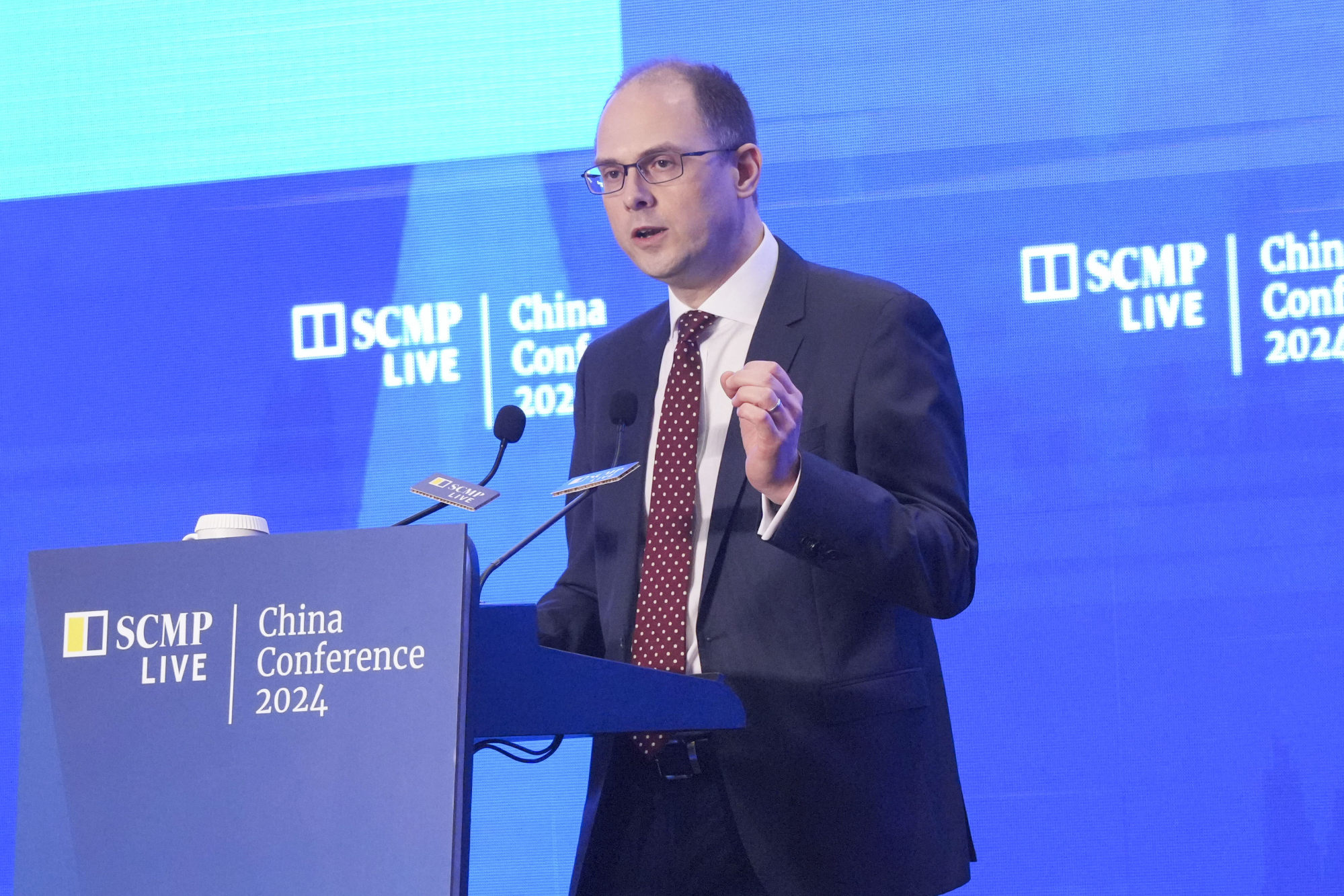Hong Kong has the right mix to attract innovative global start-ups, HKIC’s Clara Chan says
Chan was speaking at “The China Boardroom”, the opening session of the South China Morning Post’s China Conference on Thursday. The conference has brought in scores of decision makers to the city, while hundreds of participants have registered online to explore opportunities and challenges in investments and technology in the world’s second-largest economy.
The HKIC manages HK$62 billion (US$8 billion) of funds allocated to boost the city as an innovation and technology hub through investments and partnerships with start-ups.
Last month, the HKIC formed its first partnership with home-grown artificial intelligence (AI) unicorn SmartMore, enlisting the firm to use Hong Kong as a development base and to make the city’s stock market its first choice if it goes public.
This was followed by a deal with Beijing-based Biomap – a biotech firm launched by Chinese internet giant Baidu’s founder Robin Li Yanhong.
While the initial deals are with Hong Kong and mainland start-ups, Chan said the HKIC was keeping an eye on international start-ups as she travels around the world to identify potential investments and partners.
“While we are investing in the future of Hong Kong, we are also investing for the long term in an innovative ecosystem,” Chan said.
Chan said that from her conversations with investment bankers, industry players, academics and researchers she believes Hong Kong has a bright future in innovation and technology.
International start-ups, investors and entrepreneurs regard Hong Kong highly, as it is an ideal place for their families because the city is safe and vibrant, and is a melting pot of cultures from the East and the West, she added.

Manulife, the biggest insurance company in Canada which has operated in Hong Kong for 127 years, sees Hong Kong as an attractive destination for international firms to develop, according to Phil Witherington, its Asia CEO.
“Hong Kong serves as a global financial and business hub, acting as a gateway to mainland China and a regional centre for Asia,” Witherington said. “Leveraging its strengths in finance, trade and connectivity, Hong Kong contributes significantly to global cooperation and understanding, making it an essential component of China’s international engagement.”
The Hong Kong-based insurance veteran is particularly excited about Beijing’s new five-year travel permit for the city’s 270,000 permanent residents holding foreign passports.
“This development will improve the convenience for me and many other non-Chinese Hong Kong and Macau permanent residents who frequently visit the mainland for business and personal reasons,” he said. “My family will be delighted that I will no longer be the one holding us up at the immigration counter.”